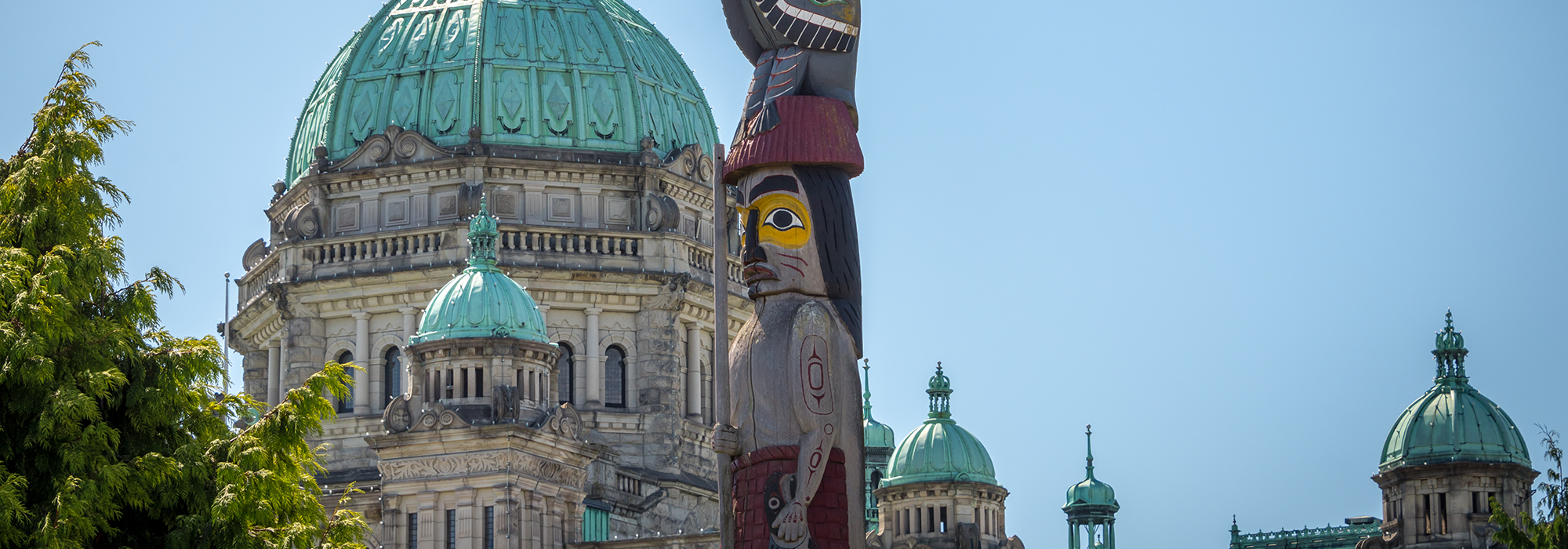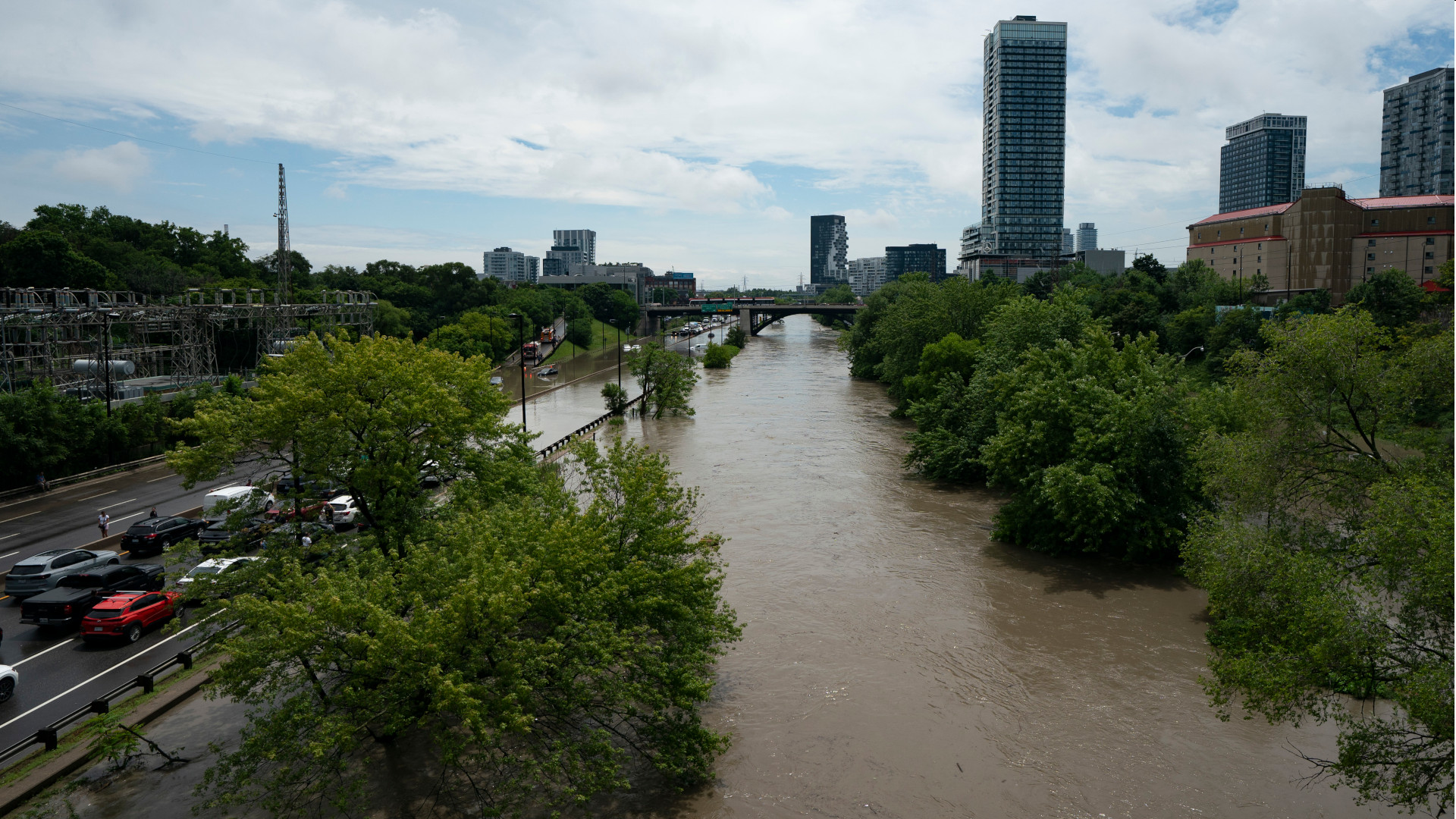
Twenty-four-year-old law student Caitlin Tolley addresses the crowd in the ballroom of the Château Laurier on a chilly November evening, drawing the attention of the diners sipping on wine and nibbling on charcuterie to the fact that they have a responsibility, tonight, to honour their relationships to the land, water and people of the unceded Algonquin territories that Ottawa occupies. Her call is one of accountable and loving reciprocity, reminding the policy-makers, academics, bureaucrats and politicians who’ve come to participate in the Pierre Elliott Trudeau Foundation’s 12th annual public policy conference that the core of all that we do here in Canada comes down to respectful relationships with the Indigenous lands and nations Canada governs alongside.
It’s a message that the Foundation’s Indigenous students, fellows and mentors have been working hard to share, that much of the Foundation’s non-Indigenous members has strongly supported and that the Foundation itself is keen to take up. Although the message has been shared for generations, this is an especially important moment to listen. Canada is in the midst of a renewed national conversation about Indigenous-state relationships, spurred in part by the delivery in May 2015 of the Truth and Reconciliation Commission of Canada’s report, which unambiguously outlines the residential school legacy in Canada as one of cultural genocide. Furthermore, the collective impact of the Idle No More movement that raised voices and consciousness through nationwide actions in 2012 and 2013 enlivens, still, the dynamic and thrilling narratives and initiatives of self-determination throughout Indigenous communities across the continent. Calls to address the nation-to-nation relationship between Indigenous nations or peoples and the Canadian state are evident in current statements offered by the current government, which indicate an acknowledgement of issues such as reconciliation and the ongoing realities of structural colonial violence resulting in the crisis of 1,186 murdered and missing Indigenous women, girls and two-spirit persons across Canada in the last 40 years.
As one small piece of its effort, the Foundation added a new component to its fall conference this year: Indigenous rapporteurs responsible for bringing Indigenous perspectives to the conference attendees. There were four: Caitlin Tolley (from Kitigan Zibi First Nation), Jesse Flowers (from Nunatsiavut), Aaron Mills (from Couchiching First Nation and from North Bay), and Zoe Todd (Métis from Amiskwackiwaskahikan/Edmonton). Each of us was invited to offer commentary to conference participants at specified points throughout the two-and-a-half-day event.
In his presentation as rapporteur, Jesse Flowers offered insight as a statistician, reflecting on the challenges of working on statistical analyses of Inuit Nunangat since the cancellation of the long-form census in Canada in 2010. He encouraged conference participants to consider the relationship between southern Canada and the North as a matter of investment in the Arctic as a region, rather than viewing the North as a burden on settlers. He drew out the challenges and successes resonating across Arctic Canada, reminding southerners to approach northern relations with reciprocity and accountability. Caitlin Tolley opened the first evening of the conference with an honour song, reminding the participants of the hard work that lies ahead as Indigenous and non-Indigenous peoples throughout Canada contend with the realities of what it means to occupy unceded territory — such as the unceded Algonquin territory the conference took place in. Zoe Todd’s intervention focused on her relationship to people, place, legal orders and fish in her home territory in Alberta, while Aaron Mills closed out the rapporteur work by inviting the audience to view, and engage thoughtfully with, the work of youth from Lac Seul First Nation in their music video Echo My Soul.
Taken together, we felt we brought something of real value to the community and a great many participants voiced this with us. Though this was an imperfect experiment, as any first effort to incorporate a new process into a conference would be, we offered unique perspectives grounded in knowledge systems that much of the Pierre Elliott Trudeau Foundation community can’t generally access. In some instances, this meant that the messages we shared differed radically from what much of the dialogue throughout the conference had been like. We appreciate the Pierre Elliott Trudeau Foundation’s assertion of new leadership here, and we encourage other institutions committed to tackling the deep challenges of life in Canada to follow the Foundation’s example. Again, we’re careful to note that the reason we regard the Foundation in this light is because of how it proceeded. After having committed itself to addressing Indigenous-newcomer relationships in Canada, it didn’t arrogantly present its own vision for the dialogue it hoped to generate or frame the responsibility it picked up through the familiar lens of state institutions accommodating Indigenous claims for difference within the liberal status quo. It spoke to actual Indigenous persons it had developed relationships with and asked them how it should proceed. This thoughtful and reciprocal approach has everything to do with why we, Zoe and Aaron, chose to participate.
Cree scholar Dwayne Donald employs in his work a principle he calls “ethical relationality,” which he describes as
an ecological understanding of human relationality that does not deny difference, but rather seeks to more deeply understand how our different histories and experiences position us in relation to each other. This form of relationality is ethical because it does not overlook or invisibilize the particular historical, cultural, and social contexts from which a particular person understands and experiences living in the world. It puts these considerations at the forefront of engagements across frontiers of difference.
This ethical stance requires us to attend to our relationships to one another, and to approach the interconnectedness between all of us with an active awareness of the specificities of history, place and social, cultural, economic and political realities.
With this ethical relationality in mind, we can approach the work of the Indigenous rapporteurs during the Foundation’s public policy conference as the labour of tending to, and asserting, relationships between people, place, stories and time. So while important, honourable steps were taken here by and for the Foundation’s community, “making space” for Indigenous voices is just a small step toward a meaningful dialogue about our differences, about systemic inequality and Indigenous peoples’ experience, about the reality of Indigenous suffering and why it exists today, and about the responsibility that all Canadians carry in respect of it. It is thus as a terrific first step that we celebrate the presence of Indigenous rapporteurs at this conference. A next step might move in a different direction altogether — depending on how all parties feel about the process. It is important to note that collaborative processes are strengthened by ongoing discourse and attention to the dynamic needs of those involved. So at the very core of this engagement between the Foundation and Indigenous interlocutors, we wish to draw attention not to the form that specific engagements take, but to the relationship, intent and reciprocity upon which these engagements are founded. If, going forward, the rapporteurs’ mechanism is retained, a logical next step would be to formally structure participant engagement with the rapporteurs and their messages into the conference proceedings. Part of the large dialogue-promoting responsibility surely includes the smaller but significant responsibility to ensure that non-Indigenous participants are also required to reflect, share and generally engage, lovingly and with care for our shared relationships.
From our perspective, this next step is absolutely essential because it manifests an acknowledgement of individual newcomer responsibility. Even sophisticated, well-intentioned bodies like the Pierre Elliott Trudeau Foundation can’t accomplish this job all alone; it requires a reciprocal, collaborative and large-scale effort between diverse individuals, systems and communities throughout Canada. The central message each Indigenous rapporteur brought was that every citizen of and visitor to Canada always stands in relationship to Indigenous persons, peoples and places. There’s no space outside of those relationships; they didn’t end once the educational moment offered at the conference passed. Institutions like the Pierre Elliott Trudeau Foundation can do much to publicize and promote this understanding as a component of citizenship in a shared, deeply problematic political community.
We assert that transformative and ethical relationships in this place will necessarily grow from attention to our shared realities as citizens, first and foremost. Before mobilizing intellectual or political responses to the various struggles that peoples face across the continent — and indeed around the globe — we ask our colleagues and peers to consider, thoughtfully and deeply, what it means to be citizens of shared places. To envision our relationships to one another; to consider the connectedness we share not only with human life but with land, water and more-than-human relations. To inform every aspect of our work and lives with the knowledge that we are all impacted by the actions of others, and to embed this relationality in the very core of the processes we use in our personal and professional lives. From this place of thoughtful, reciprocal engagement, accountable, caring and dynamic responses to complex issues and realities are possible.
Photo: Chase Clausen / Shutterstock.com
Do you have something to say about the article you just read? Be part of the Policy Options discussion, and send in your own submission. Here is a link on how to do it. | Souhaitez-vous réagir à cet article ? Joignez-vous aux débats d’Options politiques et soumettez-nous votre texte en suivant ces directives.







